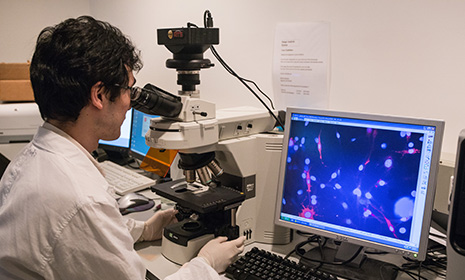FAMILY: A Jockey Club Initiative for a Harmonious Society Cohort Study Result Announcement Study on Family Support An Effective Way to Enhance Family Support - "Happy Family Kitchen" Project
The Hong Kong Jockey Club Charities Trust funded and in collaboration with the School of Public Health, The University of Hong Kong, "FAMILY: A Jockey Club Initiative for a Harmonious Society" project (FAMILY project) completed the first phase of household survey with data from 8,481 families (18,906 individuals). Among them, 7,715 families (including 17,082 individuals) had completed data relating to mental health and family satisfaction. Results show that better family support can significantly reduce the adverse effects of stressful life events (e.g. stresses at work, health problems within the family, etc) on Mental Health-Related Quality of Life.
Self-rated Mental Health-Related Quality of Life
According to the self-rated Mental Health-Related Quality of Life survey, Hong Kong people had a mean of 53.5 on the Mental Component Subscale (MCS), which is comparatively higher than neighboring countries and cities with scores from 49.5 to 51.1, while about 73% had moderate or good mental health. About 83% of people reported medium or high satisfaction with their family support with a Family Adaptation, Partnership, Growth, Affection, and Resolve (APGAR) score of " 5. After adjusting for age, sex, physical activity level, neighborhood cohesion score, number of stressful life events, number of chronic diseases and household size, better family support was associated with better Mental Health-Related Quality of Life.
Stressful Life Events
The 18 stressful life events include: death of family members or close friends, unemployment, serious health problems, financial problems, changes to interpersonal relationship and movement of residence. In the year prior to the interview, about 30% of Hong Kong people reported having at least one stressful life event. The top three stressful life events were "I had a heavier workload.", "I or my family"s financial situation got worse." and "Somebody in my family had a serious health problem.". Women and those aged 25-44 were most likely to report having encountered stressful life events. Both the existence and number of stressful life events were associated with worse Mental Health-Related Quality of Life (MCS). Greater improvement in Mental Health-Related Quality of Life was associated with better family support among respondents with stressful life events than those without. Such improvement was greater in women as compared to men.
In highlighting the fact that the study is the first in Hong Kong related to family health, happiness and harmony, Mr Douglas So Cheung-tak, The Hong Kong Jockey Club"s Executive Director, Charities, thanks the families for their participation in the baseline household survey and encourages more families to take part in the follow-up household survey.
Professor Lam Tai-hing, Sir Robert Kotewall Professor in Public Health, Director of the School of Public Health, the University of Hong Kong and Principal Investigator of the FAMILY Project says, "According to our research findings, family support can effectively enhance a person"s Mental Health-Related Quality of Life, while, at the same time, reduce the adverse impacts brought by stressful life events. Therefore, the "strong" power of family support should not be neglected and we should always remember that family members need to provide mutual support at all times." An easy place to start is to express your gratitude to your families, saying thanks and praising them when they give you a hand, to listen to your family members and give your emotional support and affection. We may need to seek help or from professionals outside when our family is going through a tough time. From a service perspective, the most effective strategies should engage families in places where they are most available and at times when they are open to change. Services should not only assist with parenting skills but also help parents with their own health, well-being and personal development.
Professor Sophia Chan Siu-chee, Professor and Director of Research of the School of Nursing, the University of Hong Kong and Co-Investigator of the FAMILY project also encourages people to spend more, quality time with family members. Professor Sophia Chan says, "We all need strong support from our family, and family support strategies need to start early for it to be effective. Family policy needs to be comprehensive, widely disseminated, and to address individual, family, and community level factors. For many people in Hong Kong, who lead fast-paced lives, more and more of them do not have enough time for a proper meal with family members and inadequate communicate can result in misunderstanding and conflicts in the family . In light of this, in collaboration with 23 service units from 19 NGOs, the School of Public Health of HKU and The Hong Kong Council of Social Service jointly organized the "Happy Family Kitchen" Project, a district-based, year-long venture in Yuen Long , and observed that at 12 weeks after the Project, participants successfully enhanced the frequency and quality of time spent on family communication which have improved family relationship and facilitated better family support."
FAMILY Project cohort study: A population-based household survey
To help build a more harmonious society, The Hong Kong Jockey Club Charities Trust has invited the School of Public Health of The University of Hong Kong to collaboratively launch a project entitled "FAMILY: A Jockey Club Initiative for a Harmonious Society" (FAMILY Project") with a HK$250 million funding. The FAMILY Project is based on the premise that traditional Chinese values of cherishing family relationships can still be adapted to modern day life, and can help promote the 3Hs " Health, Happiness and Harmony " across generations. From March 2009 to March 2011, the 1st round of the FAMILY Project cohort study: A population based household survey was conducted. The survey explored a wide variety of topics related to Health, Happiness, and Harmony (3Hs). The 2nd round household survey, a follow-up to the 1st, began July 2011 and will continue for a period of 24 months.
Useful Information
FAMILY: A Jockey Club Initiative for a Harmonious Society
Website: http://www.family.org.hk








.png)
